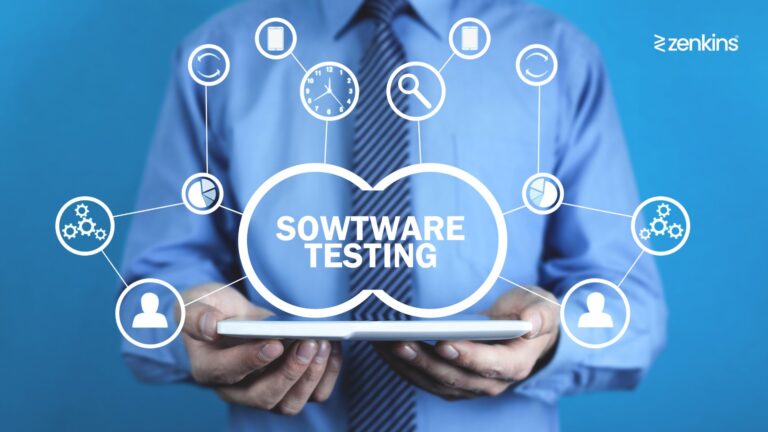Table of Contents
How to Choose the Best Software Development Partner for E-Commerce
In the fast-paced e-commerce landscape, having a reliable software development partner can be the key to staying competitive. Whether you’re a startup or an established business looking to scale, the right partner can transform your online store into a dynamic and efficient platform that meets customer expectations and industry demands. However, with numerous development firms offering their services, finding the perfect partner can be challenging.
This guide will walk you through the essential steps and criteria for choosing the best software development partner for e-commerce, ensuring that your business thrives in today’s digital world.
1. Define Your E-Commerce Needs and Objectives
Before you start searching for a software development partner, it’s important to define your specific needs and goals for your e-commerce business. Ask yourself questions such as:
- Do I need to build an e-commerce platform from scratch, or improve an existing one?
- What specific features are required, such as payment gateways, mobile optimization, or inventory management?
- How important is scalability for future growth?
- What is my budget for development and ongoing support?
By clearly outlining your requirements, you will be able to communicate more effectively with potential partners and ensure they can meet your expectations. For example, if you’re planning to expand into mobile commerce, ensure that your partner has experience in building responsive, mobile-first designs.
2. Assess the Partner’s E-Commerce Expertise
Not all software development companies are experts in e-commerce. To choose the best software development partner for e-commerce, you need to ensure they have deep experience in building e-commerce platforms. Here’s what to look for:
- Previous E-Commerce Projects: Review their portfolio to assess their experience in developing e-commerce platforms. Look for case studies or project descriptions that demonstrate their ability to handle challenges like shopping cart management, multi-channel integration, and secure payment systems.
- Industry-Specific Knowledge: A strong e-commerce development partner understands industry-specific pain points such as shopping cart abandonment, conversion optimization, and security concerns. Make sure they have a track record of working with businesses in your niche, whether it’s retail, fashion, electronics, or any other industry.
- Technology Expertise: The right partner should have expertise in the latest e-commerce technologies and platforms such as Magento, Shopify, WooCommerce, .NET, or custom solutions. They should also have experience with integrating third-party services like payment gateways, CRM systems, and ERP solutions.
3. Evaluate Their Technical Skillset and Technology Stack
The technology stack used by your software development partner is critical to the performance, scalability, and security of your e-commerce platform. A few key technologies to consider include:
- Backend Development: Ensure your partner is proficient in robust backend technologies like .NET, Node.js, or PHP, which are essential for handling databases, user management, and transactional data.
- Frontend Development: The user experience (UX) is vital for an e-commerce site. Look for a partner who excels in frontend technologies like React, Angular, or Vue.js, ensuring your site is responsive, fast, and visually appealing.
- Mobile Optimization: With a growing number of customers shopping on mobile devices, your software development partner should have experience in creating mobile-friendly designs or even dedicated mobile apps.
- Cloud Infrastructure: A modern e-commerce platform needs to be scalable and resilient. Look for a partner who has experience with cloud technologies like AWS, Azure, or Google Cloud to ensure seamless performance, even during peak traffic periods.
4. Understand Their Development Methodologies
The approach and methodologies your software development partner uses will significantly impact the success of your project. A well-structured development process ensures your project stays on track and delivers results. Here are a few factors to consider:
- Agile Methodology: A partner who uses Agile practices will focus on iterative development with regular updates, feedback, and improvements. This methodology is ideal for e-commerce businesses as it allows you to adapt quickly to changing market trends and customer needs.
- Clear Communication: Effective communication is key to a successful partnership. Your software development partner should provide regular progress updates, be open to feedback, and involve you in decision-making. Tools like Jira, Trello, or Slack can facilitate this communication process.
- Quality Assurance and Testing: Ensure the partner has a rigorous quality assurance (QA) process in place. Automated testing, manual testing, and usability testing should be standard practices to ensure your platform functions perfectly across devices and browsers.
5. Consider Post-Launch Support and Maintenance
Building an e-commerce platform is only the first step. Maintaining and upgrading the platform over time is equally important to ensure it remains secure, performs well, and continues to meet the needs of your customers.
Ask your potential partner about the following:
- Ongoing Support: Do they offer post-launch support to fix bugs, monitor performance, and ensure security?
- Updates and Upgrades: Will they help with platform upgrades and feature enhancements as your business grows?
- Security Management: Inquire about how they handle security patches, data encryption, and compliance with regulations such as PCI-DSS or GDPR.
Choosing a software development partner who offers continuous support ensures your e-commerce platform stays competitive in the long run.
6. Check Client References, Testimonials, and Reviews
One of the best ways to gauge a software development partner’s credibility is by checking client reviews and testimonials. This gives you real-world insight into how they handle projects, communication, and problem-solving. Look for:
- Case Studies: Detailed case studies on their website showing how they solved problems for other e-commerce businesses can provide assurance of their skills.
- Client References: Ask for references so you can directly speak with their clients. Ask about their experience working with the partner, the challenges faced, and how issues were resolved.
- Online Reviews: Platforms like Clutch, Upwork, or LinkedIn can also offer honest reviews of the partner’s work.
7. Look for a Partner That Understands Your Budget
Budget plays a crucial role in selecting a software development partner for e-commerce. The cost of building a custom e-commerce platform can vary greatly based on features, technologies, and complexity. Discuss your budget upfront to avoid misunderstandings later on.
While it might be tempting to choose a low-cost partner, remember that cheap solutions can often lead to more expenses down the road. Focus on finding a partner who offers value, not just the lowest price. A quality partner will help you optimize your investment by suggesting the best features and technologies within your budget.
Conclusion: Choosing the Best Software Development Partner for E-Commerce
Choosing the right software development partner for e-commerce can make all the difference in achieving your business goals. By defining your needs, assessing technical skills, reviewing their expertise in e-commerce, and ensuring they offer ongoing support, you can find a partner that aligns with your vision.
Zenkins is a leading software development partner with deep expertise in e-commerce solutions. With a proven track record of delivering scalable, secure, and user-friendly e-commerce platforms, Zenkins is your ideal partner to help your online business thrive. Whether you need to build a custom platform, integrate third-party tools, or optimize your current store, Zenkins can provide the right solution tailored to your needs.
Ready to grow your e-commerce business? Contact Zenkins today and discover how we can help you build an e-commerce platform that stands out.




